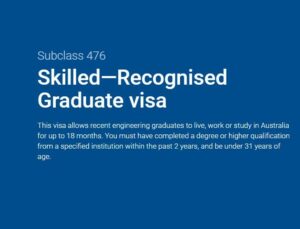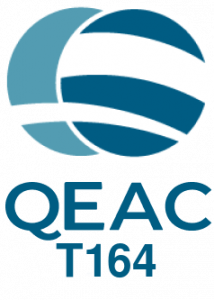General student visa (Tier 4)
International students from outside the UK or EU must apply for a student visa. You can only apply for a student visa if you intend to study a full-time degree course in the UK. Student visas are not issued for part-time courses. Your eligibility is calculated using a points-based rules system called a Tier 4 Student Visa.
If you’re a student from Pakistan, you’ll need the Tier 4 (General) student visa to study in United Kingdom. This visa is made specifically for students like you who are ready to begin their study abroad adventure in United Kingdom. Find out the best information about the process of getting the Tier 4 (General) student visa to decide if studying abroad in United Kingdom is right for you.
All international students who want to study in the UK are required to get a student visa (Tier 4). This type of visa is only available to full-time university students pursuing a degree in the UK, and not short-term or language courses.
List of Universities in UK
- Bloomsbury Institute (London, England)
- Kingston University London (London, England)
- University of Greenwich (London, England)
- UWS London (London, England)
- The University of Law (multiple cities, England)
- Birmingham City University (Birmingham, England)
- De Montfort University (Leicester, England)
- Northumbria University (Newcastle, England)
- University of Bradford (Bradford, England)
- University of Chester (Chester, England)
- University of Essex (Colchester, England)
- University of Hertfordshire (Hertfordshire, England)
- University of Huddersfield (Huddersfield, England)
- University of Lincoln (Lincoln, England)
- Glasgow Caledonian University (Glasgow, Scotland)
- Heriot-Watt University (Edinburgh, Scotland)
- University of Dundee (Dundee, Scotland)
- University of the West of Scotland (Paisley, Scotland)
UK Student Visa (Tier 4) Requirements
You can apply for a Tier 4 (General) student visa to study in the UK if you’re 16 or over
- Details of your passport
- A recent photograph
IELTS : You must prove your knowledge of the English language when you apply. IELTS : can speak, read, write and understand English
Medical : Pakistani students will need to take a medical test before arriving in United Kingdom.
Bio-metrics : Pakistani students maybe have to provide biometrics during the visa application process. Your biometrics are, basically, extra identification (e.g. fingerprinting and pictures) that countries use for security purposes.
Interview : You will have to attend a visa interview during the application process.
Finance: have enough money to support yourself and pay for your course – the amount will vary depending on your circumstances
Entry requirements at London universities for students from Pakistan
The education system in Pakistan is different to that in the UK, even though some of the terminology is similar. Course entry requirements can vary depending on the university and degree you choose. The information below is only a guide so be sure to check the specific entry requirements for your favourite courses.
Entry Requirements for Undergraduate Courses (First degree)
Students who have taken the Pakistani Secondary School qualification (HSSC) will need to take an international foundation course before entering onto a UK bachelor degree. Alternatively, a two-year or three-year bachelor degree from Pakistan with good grades (60% or higher) might also be considered for entry onto the first or second year of a UK Bachelor degree.
Students are normally required to achieve an overall First Division pass (60% or higher) in the HSSC in order to be accepted onto an international foundation course.
Students who have taken A-levels, the International Baccalaureate or Advanced Placement exams will be considered for direct entry for undergraduate courses.
Entry Requirements for Postgraduate Courses (Second degree)
For master’s degrees, Pakistani students are normally required to have a First Division pass in a 4-year bachelor honours degree.
Students who have a 2 or 3-year bachelor degree must also have a First Division pass in a master’s degree.
Where a GPA score is given, a minimum score of between 2.6 and 3.3 out of 4 is required at either bachelor or masters level.
Process in Steps
You need 40 points to apply for a student visa. This is achieved by:
1. Course confirmation: you must receive a Confirmation of Acceptance for Studies (CAS) from a university approved by UK Visa and Immigration (UKVI).
All universities must have been given or applied for Highly Trusted Status (HTS) on the UKVI Tier 4 Sponsor list (30 points). ‘A rated’ colleges can also issue CAS numbers. The ‘A’ rating is a transitional rating for 12 months and all ‘A rated’ colleges must apply for HTS status within this 12 month transition period.
All universities on the Study London website have Highly Trusted Status (HTS). You can view the London university profiles for more information about each London university, or use the course search to find the right course for you.
2. Funding: you must provide evidence of funding to pay for both your course tuition fees and your monthly living costs (10 points).
Tuition fees are on average £12,000 per year but can range from £8,000 to £36,000. You will also need to show that you have £1,265 for each month of your studies (up to a maximum of nine months) to pay for living costs if you study in inner London. Therefore, if you will be studying in inner London for a course lasting nine months or more, the maximum amount that you will need is £11,385.
3. Visa Application: In order to submit your Tier 4 student visa application, please visit the UK Visa & Immigration website to complete the online application form. International students from all countries (apart from North Korea) have to submit the visa application online. You will also need to have your fingerprints and photograph (known as ‘biometric information’) taken at a visa application centre as part of your application.
4. Immigration Health Service Charge: All nationals from outside of Europe coming to live in the UK for longer than six months are required to pay a ‘health surcharge’ in order to gain access to the UK’s National Health Service (NHS). The health surcharge is £150 per year (or £75 for 6 months or less) for students and is payable when you submit your visa application on-line. Visa applicants need to pay up-front for the total period of their UK visa. For further information, read our Health Advice for International Students .
When to apply
You will need to be offered the Confirmation of Acceptance for Studies (CAS) from your chosen university before you can apply for a visa. You can only apply for your visa three months before the start date of your course. This means, if your course starts at the end of September, you will receive your CAS around the end of June.
When you apply for your visa, one of the most important things you need to prove is that you can support yourself during your study programme. For United Kingdom, they require you to prove that if you’re going to study in London 1265 GBP/month, or if you’re studying outside of London 1015 GBP/month either from an external source, or already in your bank account.
The earliest you can apply for a visa is 3 months before you start your course.
You can apply for your student visa in UK 3 months before your course starts. Once you submit a university application you’ll receive (or you can request it) a Confirmation of Acceptance for Studies. This document will entitle you as an admitted student in UK and therefore you’re eligible to seek a visa. Use the CAS number to support your student visa application form.
You can arrive in the UK before your course starts:
up to 1 week before, if your course lasts 6 months or less
up to 1 month before, if your course lasts more than 6 months
Visa Fees
Naturally, applying for a UK student visa carries a certain fee which may depend on your nationality and the type of visa you’re willing to get. Furthermore, the student visa fee scheme changes from time to time so you must always check the official sources.
To apply for the British Tier 4 (General) student visa, you will also have to pay a fee of 363 GBP. Depending on your situation, British authorities will allow you to pay this fee online, on location at a visa application centre in Pakistan, or through a bank transfer.
It costs £363 to apply for this visa from outside the UK.
You must pay £363 per person for any dependants.
Healthcare Charges - IHS
If a student is applying visa for more than six months in the UK have to pay health care surcharge of £700 per year.
Validity
The Tier 4 (General) student visa from United Kingdom is valid for up to course duration + 2 month extra. So that you can stay during your entire degree programme, you may need to renew your visa every year. If you want to stay in United Kingdom after your degree is over, you will have to apply for a different visa, or a visa renewal through the immigration office.
YOU CAN APPLY FOR 2 YEARS OF PSW AFTER COMPLETING A DEGREE.
Process Time
Be sure to allow extra time for your visa application. Immediately after you’ve been accepted to and enrolled in the university of your choice, you can already start your application for the British Tier 4 (General) student visa. You should apply at least 3 months before your university degree programme starts.
After you’ve applied, you can expect that you’ll wait about 3 to 5 weeks for the decision.
Visa Grant Decision
- You’ll usually get a decision on your visa within 3 weeks.
What you can and cannot do
You can study, apply to extend your stay & work as a student in most jobs – depending on what level your course is and what kind of sponsor you have
Yes, you can. Under current legal regulations in the UK you are allowed to find a part-time job while studying. As a government-sponsored international student who attends a course for 6 months or longer, you’re allowed to work up to 20 hours per week. However, make sure your university is listed on the list of recognized higher education providers in the UK. At this link is the full list of these recognized bodies.
You can work for up to 20 hours a week during your studies and full-time during your holidays to help support your studies. This only applies if you are studying a degree level course at a UK higher education institution for longer than 6 months. The university or college must be listed on the Highly Trusted Sponsor (HTS) list and the list of recognised bodies. Find out more information about working in the UK during your studies and after you graduate.
Dependants
You can, but there are some restrictions and exemptions applied you must be aware of. As a government-sponsored student, you can bring in UK your dependants if you’re enrolled in an undergraduate course longer than 6 months or in a postgraduate course longer than 12 months at a recognized university.
First, you need to know what is regarded as a dependant. Your spouse/wife and children are considered as your Tier 4 dependants. Other relatives are not.
Next, your dependant must prove good financial resources in order to be given the right to come in UK as your dependant. The amount of money required in this case can be held by you or by your dependant.
Your dependant can work in UK under these circumstances
You’re attending an undergraduate degree course longer than 6 months or a postgraduate degree course longer than 12 months.
A newly introduced rule in the UK states that those dependants who submit an immigration application on or after 06 July 2018 will be allowed to work even if your course is longer 9 months or longer.
You can bring your partner and children to the UK as your Tier 4 dependant if you are a government-sponsored student and your course is longer than six months or you are doing a postgraduate level course of 12 months or longer at a publicly-funded Higher Education Institution or a ‘recognised body’.
Switch to this visa
How to get a work visa after studies in UK as per new policy sep 2019
If you’re thinking to remain in the UK for a certain period after getting your degree there are various options for you. As long as your student visa is valid you’re allowed to find a full-time job and work in the UK. After your visa expires, you must contact the Home Office if you want to extend its validity.
International students will be allowed to stay in the UK for two years after graduation to find a job, under new proposals announced by the Home Office.
The new route will also allow graduates to ‘switch’ to the Tier 2 skilled worker visa, under which they can find a sponsor and a role that meets the requirements.
- NOTE : Always have in mind that visa restrictions and requirements in the UK change regularly. Therefore, you must always check the official visa policy guidelines before initiating an application.






